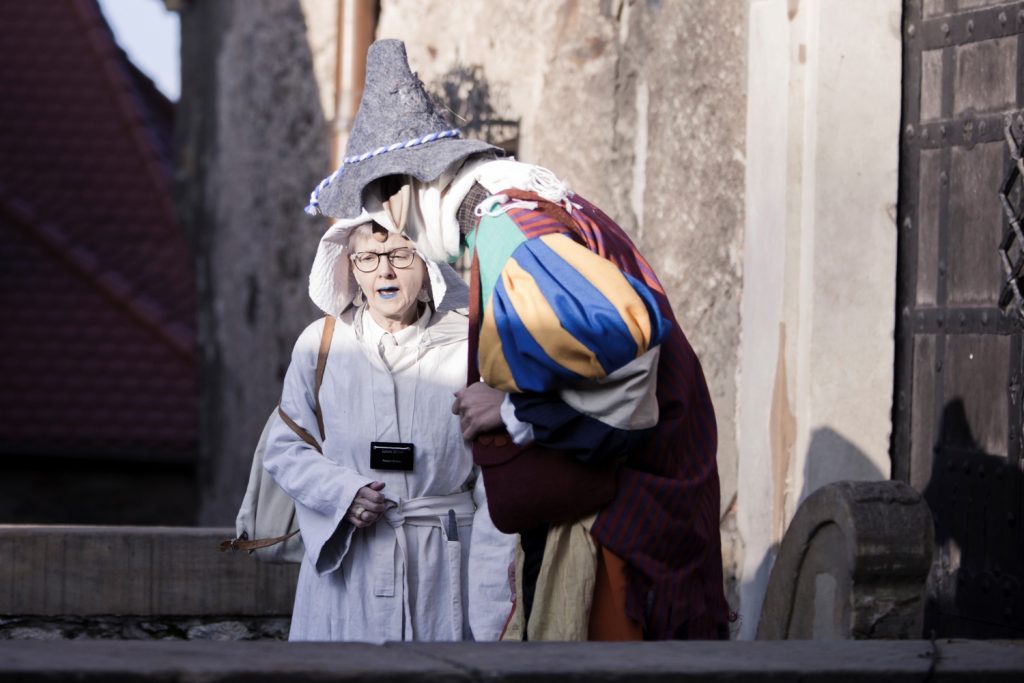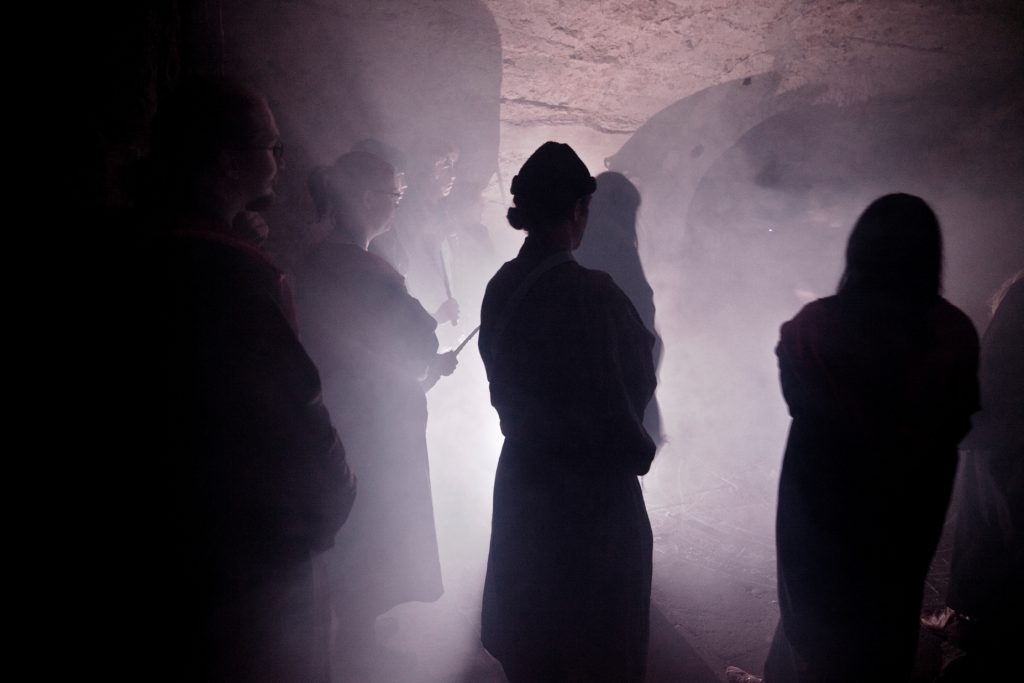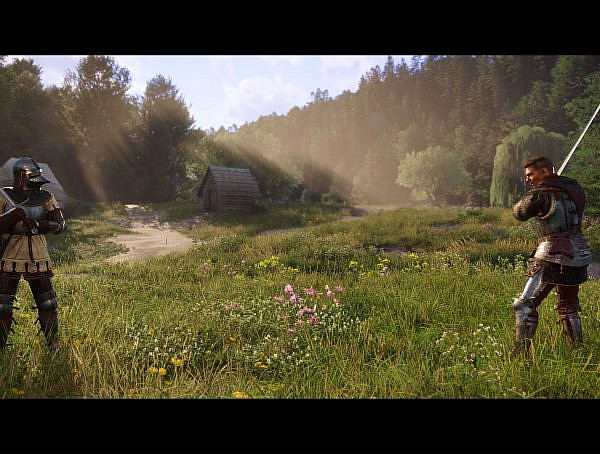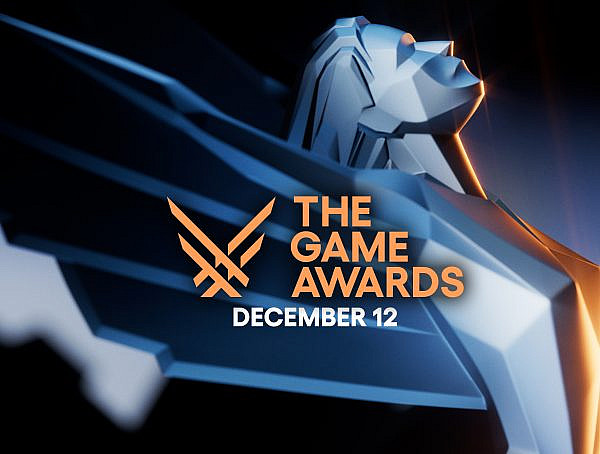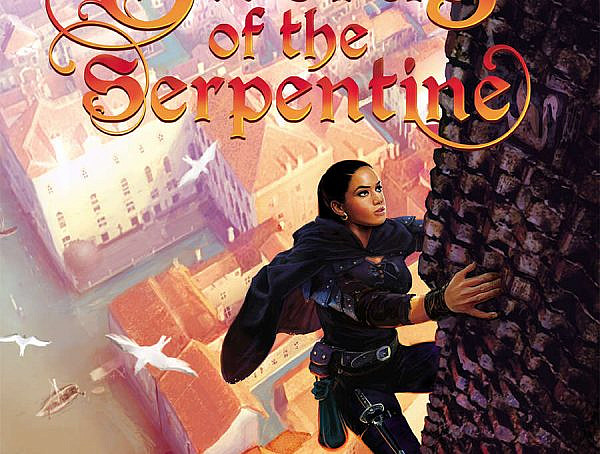Fleeing a teacher in a secret passage is hard. It’s not about getting away – running is easy. The difficult part is in choosing the right exit so you won’t burst out in the middle of a class, and pacing yourself so you do not get winded. Evading the teacher is no use if you look like you’ve been running for your life.
The above is only one of the many unexpected lessons I received at the Czocha College of Witchcraft and Wizardry, the setting of the larp College of Wizardry 10, played at a 14th-century castle in Poland. For three days, 135 players took on the roles of staff and students beginning their new school year. Juniors were sorted into their Houses, homework was given and turned in, the occasional demon summoned, a range of escapades, hijinks, shenanigans and skulduggery performed, and finally, the House Cup awarded.
If it sounds terribly Harry Potter, that’s because it originally was. The first CoW, played in late 2014, was explicitly set in J.K. Rowling’s world, several years after the events. After the game went viral, the organizers, a Polish-Danish team called Dziobak Larp Studios, had a polite talk with some Warner Brothers lawyers, who graciously allowed them to run the two events they had already planned using the Harry Potter property. From the fourth game onward, College of Wizardry has been its own thing. This was the tenth run; at the time of writing, numbers 11 and 12 are already sold out.
The Game
As a larp in the Nordic tradition, College of Wizardry had very few rules. The game was preceded by a couple of hours of workshops, where we mostly got acquainted with the other players and the characters we’d spend the next couple of days with. We figured out what our characters thought about one another and what kind of history they had, who’d win in a fight, who had money to throw around, and so on.
We were also taught the spellcasting system. The only hard and fast rules are that teachers always win, and the target decides the spell’s effect. The caster should at least hint what they are trying to accomplish, and the target may choose to play along, or not. Students’ spells fizzle often. The aesthetic guideline to follow is “play to lose”. The idea is not to win, but to play out the result that gives the most interesting story. Sometimes this could indeed mean winning – there was a character at the larp who was a superb duellist, who also picked the wrong fights for the wrong reasons. He was undefeated, but he also lost everything, was expelled, and finally died at the end of the game.
I came to the game without any plots of my own and with a rather fuzzy understanding of what kind of person my character actually was, but at no point during the game was I bored or lacking things to engage in. There was stuff to do with my housemates in House Faust, with my political club ARM, and with the Basement Beer Brigade, a drinking club/school defence society that I joined on Thursday. If I had a quiet moment, I could do homework and turn it in to a teacher for some House Points. I wrote more during CoW than I’ve written during entire actual university courses.
The Magic
College of Wizardry was the most engaging game I have ever played. Partly this was because of the castle. There was no need for suspension of disbelief in the environment since it already supplied a near-perfect 360° illusion. Another thing was the length. I had time to figure out who my character really was, how he reacted to things, what were his strengths and weaknesses. Over the game, Charles Duke turned from a couple of pages of text and a wand I made from a cocktail spoon and a few strips of leather into a fleshed-out person.
And then there were the people. The sheer number of players did a lot – it was easy to believe I was in a big school when there really were over a hundred of my fellow students around. The main thing, however, was that they were all doing the same thing I was. We were together creating a multitude of stories, acting out a shared fantasy. CoW has built a strong community of players. It has inspired spinoff games, several books, and even music. At the end of the game, we joined together in singing the Hymn of Czocha.
Coming out of the game was hard, and the post-larp blues lasted nearly a week. This article is the sixth long text I have written to process the experience. Letting go of something that intense is not easy and relating to people who hadn’t been there was difficult for a few days. I coped through Facebook and Google+ Hangouts with fellow players. It is easy to see why some people keep going back to Czocha, time after time.
I know I will.
You might also like
More from Features
Game Awards – Celebration of talent or a Marketing Extravaganza?
The Game Awards 2024 is over and the winners are announced. However, are they still following the same pattern that …
Worlds in a Finnish Theater: League Finals, Community, and Döner Kebab
I travelled to Helsinki to watch League finals in a cinema, and it was worth it. #leagueoflegends #esports #community #worldfinals







